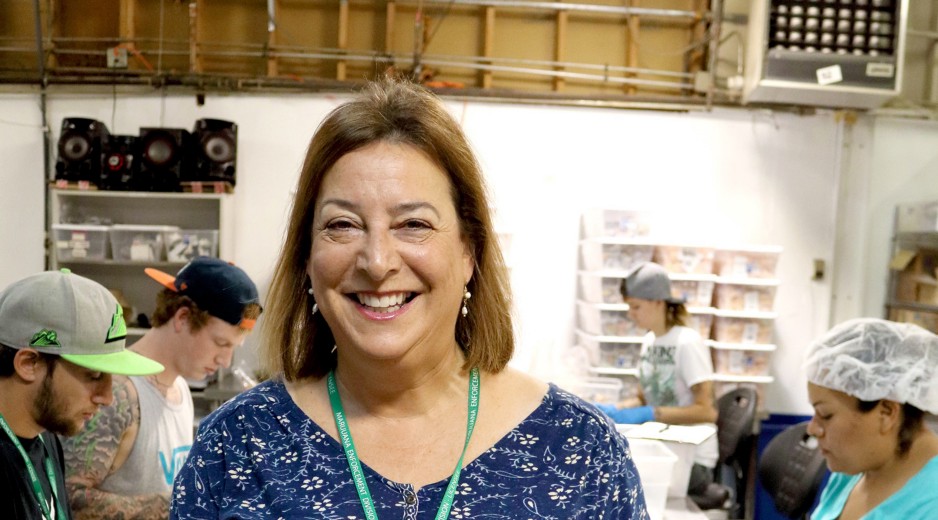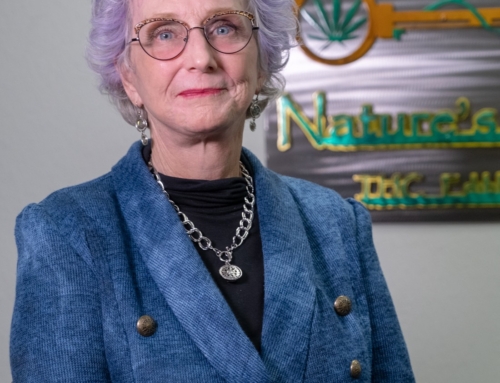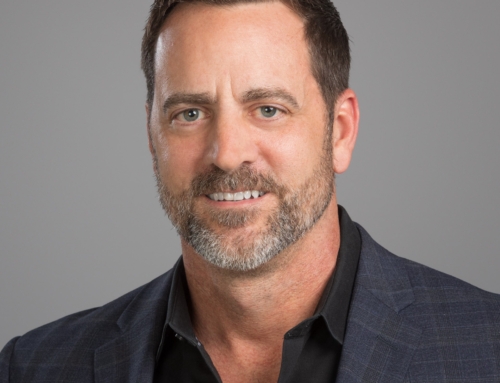I had the pleasure of interviewing Nancy Whiteman, the Founder and CEO of Wana Brands. Since founding Wana in 2010, she has built Wana Brands to be the #1 infused products company in Colorado in both units sold and dollar share. Nancy was named the Queen of Legal Weed by Inc Magazine in 2017.
Thank you so much for doing this with us! What is your “backstory”? How did you first get into this business or get interested in the business?
I became aware of the industry through a neighbor who had started an infused beverage company, and we agreed to go into business with him. While that partnership didn’t last very long, it got us going in the industry. At first, I was primarily intrigued by the business opportunity but as I learned more about cannabis and began to get feedback from our customers on how much our products were helping them through difficult medical situations, I started to really understand the power of the plant and the real potential for cannabis to change the world. At that point, I became fully committed to the industry, and it became much more than a business to me. It’s definitely a passion now.
Can you share the funniest or most interesting story that happened to you since you started your company
There have been so many. One personal favorite was an employee who stole from us, which normally is not funny, but he chose to steal by going to a restaurant supply company and forging a company signature to purchase four very high-end blenders. We figured this was his big break to start a smoothie empire. I still think of him out there somewhere with his stolen blenders, making smoothies on a beach and living the good life.
What do you think makes your company stand out? Can you share a story?
I think it’s Wana’s product consistency and the fact that they taste really good. People tell us constantly that they wish they could buy an unmedicated version of our products, so they could eat a whole bunch of them. Consistency in edibles is really important because many people have heard about or experienced eating too much for their tolerance level and having an uncomfortable experience. So, when they find a product that works for them, tastes good, and is the same every time, they stick to it. It’s wonderful for us because it creates very strong brand loyalty.
It’s also our commitment to service that distinguishes Wana. We had a situation a few years ago when an important customer forgot to put in an order in time for what was their biggest weekend of the year. Our couriers couldn’t deliver in time so one of our sales reps drove three hours each way to bring them their order. That builds a sense of partnership with our customers that is critically important in a shelf space constrained and highly competitive market like Colorado.
None of us are able to achieve success without some help along the way. Is there a particular person who you are grateful towards who helped get you to where you are? Can you share a story?
This is not an industry to go it alone. It can be frustrating and sometimes terrifying when the rules change suddenly, and you are looking at having to overhaul major parts of your business operations in a short period of time. I absolutely have relied on my competitors, many of whom are also my friends, for moral support and for exchanging ideas and resources on how to deal with various business and regulatory issues that have arisen. We call it “coopetition”. I believe in competing on product quality and service, not on withholding information from other people.
To that end, about a year and a half ago, the regulations changed to require each individual edible product to be marked with a universal THC symbol. For most of us, that required a significant overhaul on how we were producing our products. I talked extensively to my network and we all shared what solution we were considering, vendors, and the pros and cons of various options. It was enormously helpful. And having friends to commiserate with was also incredibly valuable!
Are you working on any exciting projects now?
Yes, but if I told you, I would have to kill you. Seriously, we are working on a number of exciting projects, but they are confidential at this point.
Can you share 3 things that most excite you about the Cannabis industry? Can you share 3 things that most concern you?
Exciting Things:
- The potential for cannabis to reduce the opiate epidemic
- The potential for cannabis to reduce the use of prescription medications that have unwanted side effects
- Our increasing understanding of the role of various cannabinoids and terpenes, how extract and recombine them to create specific effects and experiences.
Concerns:
- Lack of funding for good research that will enable us to understand the potential for cannabis for a variety of medical conditions
- Lack of education, both of the dispensary employees who are working with customers and patients, as well as the general public who have many gaps in their knowledge about cannabis.
- Structural issues such as banking and 280E which collectively depress available capital and earning potential. The lack of banking options also opens the door to all the issues one would expect in an industry that has to deal heavily in cash.
Can you share your top “5 things you need to know in order to succeed in the Cannabis industry”? Please share a story or example for each.
- Persistence and Resilience: we have had many setbacks along the way including bad partnerships, unexpected changes in regulations, employee problems, cash flow constraints. Some of these are the same issues that you would have in any business but the fact that it is federally illegal adds an extra dollop of risk and uncertainty. This past year, for example, we were getting ready to release a product when the regulations changed to require a new type of packaging which took months to source and subsequently required a reformulation of the product to make it work in the new packaging. You just have to be able to say, “oh well” and keep going.
- Passion: Many people think that this industry is a get-rich-quick scenario but it’s not. It’s not the easiest way to make a living so if you don’t genuinely love the industry and believe in the plant, it probably is not the best industry for you.
- A sense of humor: If you can’t see the humor in all the craziness, it will probably drive you nuts. I’ve never laughed more at work than I have in the last eight years. You can laugh or cry, and I prefer to laugh, although I’ve had my share of tears as well.
- The ability to build relationships with your employees, partners, customers and vendors. It’s a bit of a cliché to say that people are the most important variable in any business, but it is also completely true. You must surround yourself with people you like and trust. To me, this is not just good business, it’s also what makes work truly enjoyable. Yes, people will let you down, but you need to go on trusting anyway while learning from your mistakes. I have a million stories about this but the common denominator in most of my mistakes is not listening to my gut about people and their intentions. Now I subscribe to the Russian proverb (which is often attributed to Reagan) “trust but verify”. Verify can mean a variety of things from exchanging financial information to talking with mutual connections to simply listening to your instincts.
- Enough money to get you through the early lean years: We were fortunate that when we started, we were able to bootstrap our company with a relatively modest initial investment. But, we kept putting money in for the first two years — and took no money out — while we were getting a toe-hold in the market, and I kept my day job (consulting) for much of that time. We were able to
get started with a modest investment because the market was pretty undeveloped and unsophisticated, and it didn’t require as much money to get your product sampled and on the shelves at dispensaries. Now it would be much harder to do that. Dispensaries have limited shelf space and demand a much higher level of service. So, getting started has gotten much harder for a new brand, and they need to make sure that they have enough money to launch successfully and grow quickly if their product takes off. (Dispensaries hate back orders!)

In our experience when people are passionate about what they do they are more successful. Where does your cannabis passion come from?
It absolutely comes from our end customers who generously share their stories of how our products have helped them. When people tell you that your products helped them through chemo or got them off from opiates, it’s a totally different feeling than I have ever had from anything else I have done in my career and it inspires me to keep going and to want to create the best products possible. My passion also comes from wanting to see the company succeed and, in the process, to create opportunities for our employees.
Where do you see your business going in the next 5 years? Where do you see the cannabis industry going in the next 5 years?
I want to build Wana to be the best and largest infused products brand in the country and beyond. I want Wana to be known for great products and service but also for our contributions to the industry in terms of education and innovation.
The industry will continue to explode as legalization progresses (state and, ultimately, Federal) and structural problems such as banking and 280E are addressed. When Federal legalization occurs, I think we will see major brands moving into the industry from many sectors including Pharma, Alcohol, Tobacco and Consumer Packaged Goods. We’ve already seen the beginning of that. I also think that investors and funds who have been sitting on the sidelines will begin to invest much more heavily in the industry. I envision huge breakthroughs in terms of research and what we learn about leveraging the various compounds in the plant.
Are you able to identify any rising stars at your company or in your industry that people need to keep an eye on?
We have so many stars at Wana that I couldn’t possibly single out a particular person.
What growth sectors should most people be paying attention to that they might not be currently?
I think some of the most exciting work in the industry is going to come from people who are entering the industry from the science community and related industries including plant genetics, extraction techniques, compound isolation, and medical research on effects of cannabis on various medical conditions. I think the issue that is holding back many of these companies today is that there is a lot of foundational research that needs to be done that will ultimately be the building blocks for huge break-throughs in the future but relatively little funding available. Within that constraint, we try to seek out individuals and companies that are doing leading edge work but who need a partner that can bring their ideas to fruition and eventually to market.

Some of the biggest names in Business, VC funding, Sports, and Entertainment read this column. Is there a person in the world, or in the US whom you would love to have a private breakfast or lunch with, and why? He or she might see this. 🙂
I have huge respect for the work of the Gates Foundation and would love to see them funding some medical cannabis research. I think it has huge potential to alleviate a lot of suffering in the world, so I think it fits with their overall mission.
This was very inspiring. Thank you so much for joining us!
Thank you for interviewing me!









![“The potential to help people [in this industry] is enormous, but there’s still so much to learn.” – Ramon Alarcon, Witi](https://lakesideremedy.com/wp-content/uploads/2020/12/1thj5ekUyxQ69iLz1JJyODg-scaled-e1607882756286-500x383.jpeg)
